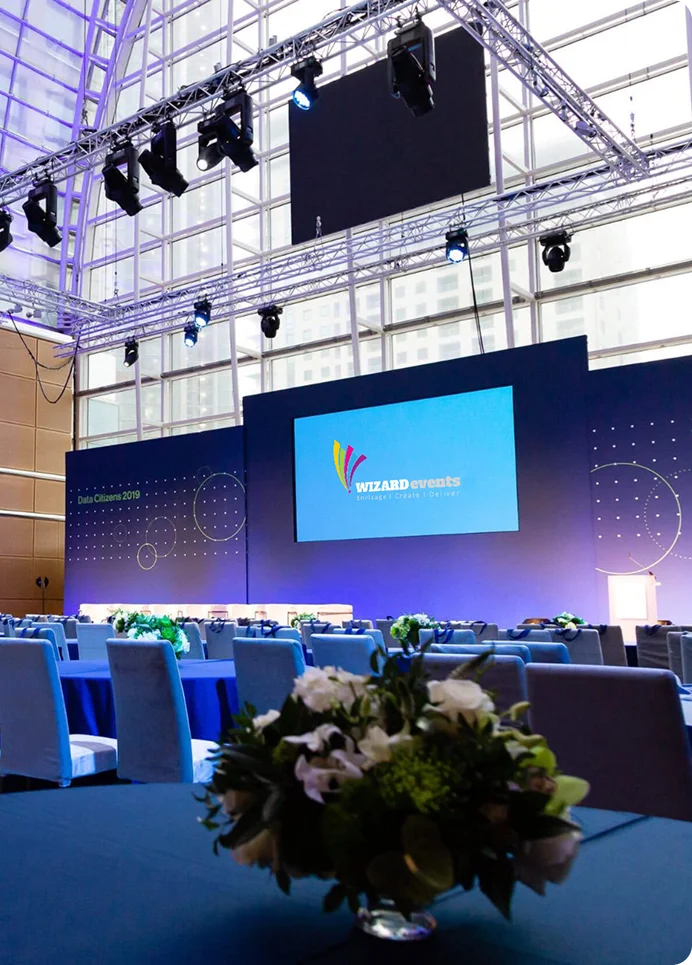In today’s fast-paced corporate world, productivity is often celebrated more than balance. Yet, organizations that prioritize employee well-being consistently outperform those that don’t. A genuine wellness culture at work goes far beyond gym memberships or annual health checkups—it’s about creating an environment where people feel valued, supported, and empowered to bring their best selves to work.
At Wizard Events, we’ve seen how integrating wellness into company culture not only improves morale but also transforms performance and engagement. Here’s how you can build a workplace where wellness becomes a shared value and not just a corporate slogan.
1. Define What Wellness Means for Your Organization
Every company is different, and so are its employees. Start by understanding what wellness means within your unique context. For some teams, it may be about stress management and work-life balance. For others, it might mean ergonomic workspaces, flexible schedules, or mental health support.
Conduct anonymous surveys or open discussions to discover what employees truly need. Once you understand their priorities, you can design wellness initiatives that feel authentic and relevant.
2. Get Leadership on Board
A wellness culture starts at the top. When leaders actively model healthy behavior, taking breaks, prioritizing mental health, encouraging downtime, it signals to employees that well-being is a core company value.
Wizard Events helps organizations design leadership retreats and engagement workshops where senior teams learn to champion wellness with empathy and consistency. Leadership buy-in is essential for long-term success.
3. Make Wellness Part of Everyday Operations
Wellness shouldn’t be limited to HR initiatives. Integrate it into your day-to-day culture. This could include:
- Encouraging walking meetings
- Providing healthy snacks in the office
- Offering flexible working hours
- Creating spaces for relaxation or mindfulness
Small, consistent actions matter more than occasional grand gestures.
4. Organize Wellness Events and Experiences
Wellness thrives when it’s celebrated. Hosting periodic wellness events builds excitement and engagement. Wizard Events specializes in curating corporate wellness experiences ranging from yoga retreats and nutrition sessions to interactive well-being fairs that combine learning with fun.
These events help employees recharge, connect, and develop healthier habits in an inspiring setting.
5. Support Mental Health
A strong wellness culture must include emotional and psychological well-being. Encourage open conversations about mental health, provide access to counseling services, and train managers to identify burnout signs early.
Companies that invest in mental health support often see lower absenteeism, higher engagement, and better overall performance.
6. Celebrate Participation, Not Just Performance
Rewarding participation in wellness programs fosters inclusivity. Recognize employees who contribute ideas or take part in health challenges. At Wizard Events, we’ve helped organizations gamify wellness, introducing points, badges, or leaderboards that make healthy habits social and rewarding.
7. Measure and Evolve
Wellness isn’t static. Regularly assess your initiatives using employee feedback, participation rates, and satisfaction scores. Use this data to refine programs over time. A culture of wellness grows stronger when it evolves with your team’s changing needs.
8. Partner with Experts
Creating a wellness culture requires expertise in both engagement and event execution. Partnering with professionals like Wizard Events ensures your initiatives are impactful, data-driven, and designed for maximum participation. From themed wellness days to long-term engagement campaigns, they help companies bring wellness to life in meaningful ways.
Frequently Asked Questions (FAQs)
1. What is workplace wellness culture?
It’s an environment where the organization supports employees’ physical, mental, and emotional health through consistent practices and values.
2. How can small companies build a wellness culture?
Start small—offer flexible hours, organize virtual fitness sessions, and encourage regular breaks. Even low-cost actions can make a big difference.
3. Why do wellness programs fail?
Programs fail when they lack leadership support, authenticity, or follow-up. Sustainability is key.
4. What role do events play in wellness?
Events bring energy and visibility to wellness initiatives, helping employees connect with the message emotionally.
5. How can Wizard Events help?
Wizard Events designs customized wellness events that inspire participation and help companies embed wellness into their culture seamlessly.
Conclusion
A thriving wellness culture is not built overnight. It’s cultivated through consistent care, empathy, and action. When employees feel healthy, supported, and engaged, the organization grows stronger from within.
At Wizard Events, we help businesses design programs that go beyond policies, creating experiences that connect people to purpose and each other. Because a healthy team is a high-performing one.








